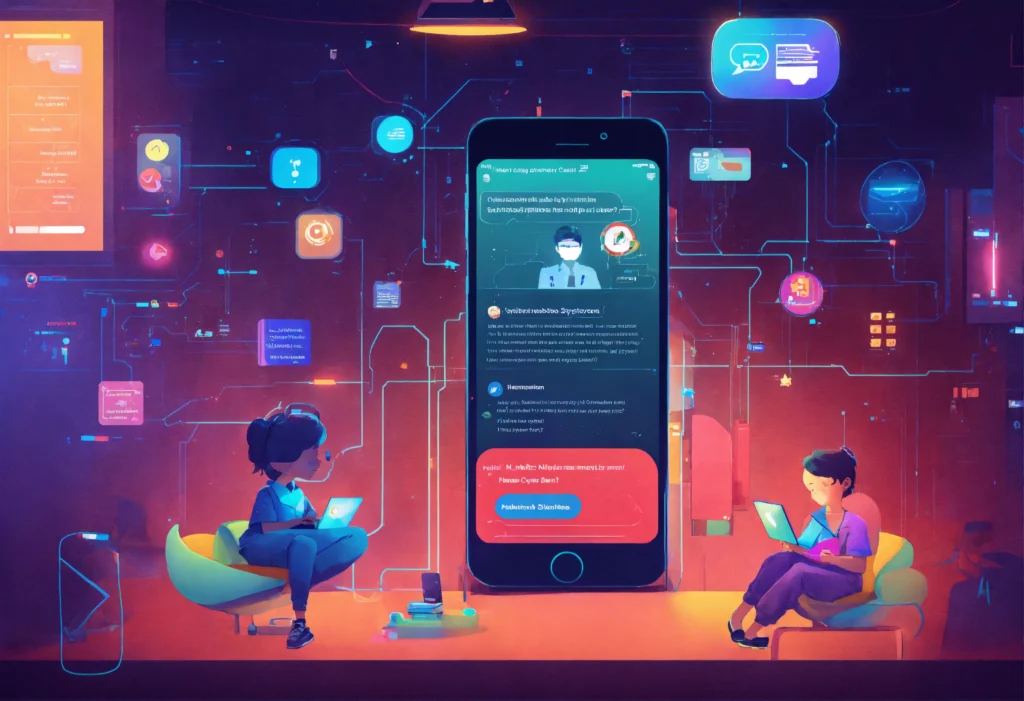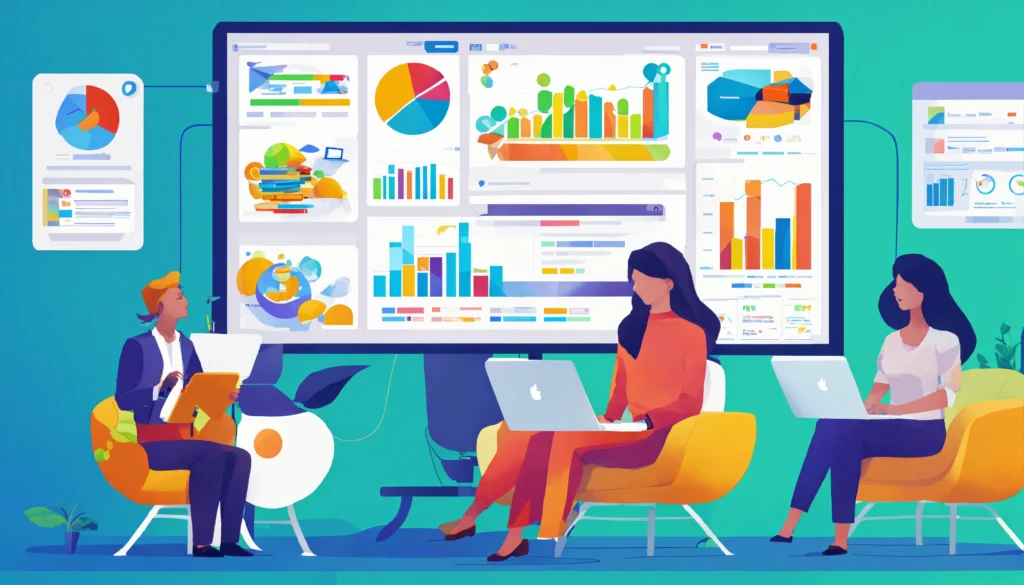In today’s business landscape, competition is fierce. Survival and growth depend on a company’s ability to understand its customers, engage with them in a personalized way, and efficiently scale its marketing strategies. This is where CRM (Customer Relationship Management) and ERP (Enterprise Resource Planning) play a pivotal role, offering a powerful synergy that allows not only to personalize the customer experience but also to optimize internal processes for sustainable growth. This strategic integration becomes the key to unlocking the true potential of digital marketing, moving from reactive tactics to highly effective proactive strategies.
1. Marketing Personalization: Beyond Basic Segmentation
Market segmentation is a fundamental concept in marketing, but it’s no longer enough. Today’s consumers demand personalized and relevant experiences tailored to their individual needs and specific preferences. A robust CRM allows you to collect and analyze valuable data on customer behavior, including purchase history, website interactions, communication preferences, and more. This detailed information enables the creation of rich customer profiles and segmentations that are much more precise than traditional demographic-based ones.
For example, an e-commerce company can use its CRM to identify customers who have viewed a specific product but not purchased it. Through personalized email marketing, a subtle reminder can be sent, offering a discount or additional product information. This retargeting strategy significantly increases conversion rates, demonstrating the power of personalization driven by an effective CRM . Furthermore, integration with marketing automation tools allows these actions to be automated, scaling personalization to thousands of customers without the need for manual intervention.
Personalization goes beyond communications; it extends to the offering of products and services. A well-implemented CRM can identify purchasing patterns and recommend relevant products to each customer, increasing customer lifetime value (CLTV). Imagine a streaming platform that, based on a user’s viewing history, recommends movies and series that are likely to interest them, maximizing retention and satisfaction. This predictive capability is an invaluable asset that is only possible thanks to the analytical power of a CRM integrated with other tools.
2. Scalability and Operational Efficiency with ERP-CRM Integration
While a CRM is crucial for customization, an efficient ERP (Enterprise Resource Planning) is essential for scalability. An ERP centralizes and automates a company’s operations, from inventory and supply chain management to accounting and finance. Integrating a CRM with an ERP creates a powerful synergy that optimizes operational efficiency and facilitates growth.
Effective integration, for example, allows the marketing team to have real-time access to crucial information such as available inventory, delivery times, and order status. This prevents costly errors, such as promoting out-of-stock products or promising unrealistic delivery times. ERP information can also inform marketing strategies, allowing for the creation of targeted campaigns based on product availability or real-time demand.
Imagine a clothing company that uses its ERP to track inventory in its physical and online stores. Its CRM can identify customers near a store with a specific product in low stock. Through push notifications or email marketing, the company can direct these customers to the store, driving sales and optimizing inventory management. This is a clear demonstration of how ERP-CRM synergy boosts marketing efficiency and scalability.
Furthermore, automating processes through an ERP frees up time and resources for the marketing team to focus on more creative, value-added strategies. Automating repetitive tasks, such as report generation or order management, allows for more efficient allocation of human resources, maximizing productivity and return on investment (ROI).
3. Advanced Analytics and Data-Driven Decision Making
Both CRM and ERP systems generate a vast amount of data. The key to making the most of this information lies in advanced analytics. Business intelligence (BI) tools can be integrated with both systems to provide actionable insights, enabling marketing teams to make more informed and strategic decisions.
For example, CRM data analysis can reveal patterns of customer behavior that indicate a need to adjust marketing strategy. If a decrease in the conversion rate is observed for a specific product, data analysis can identify underlying causes, such as a problem with the product page or a lack of relevant information. This information enables quick and effective decision-making to correct course and maximize results.
ERP integration allows for another layer of analysis, considering factors such as customer acquisition cost (CAC), profit margin, and product lifecycle. This holistic analysis provides a complete view of marketing campaign performance, allowing you to optimize investment and maximize ROI. The ability to attribute ROI to specific campaigns, thanks to CRM and ERP data integration , is crucial for strategic decision-making in digital marketing.
4. Challenges and Considerations for Implementation
Successful implementation of an integrated CRM-ERP system requires careful planning and meticulous execution. Some of the most common challenges include:
* Data integration: Integrating data from different systems can be complex and require a significant investment in time and resources. It is crucial to have a well-defined integration strategy and the necessary technical expertise to ensure compatibility and data quality.
* Implementation costs: Implementing a CRM-ERP system can be expensive, including software, hardware, consulting, and implementation costs. It is essential to conduct a cost-benefit analysis before making a decision.
* Staff training: Staff must be properly trained to use the systems effectively. A lack of training can result in low system adoption and a decreased return on investment.
* Maintenance and updates: CRM-ERP systems require regular maintenance and updates to ensure optimal operation and data security. It is important to consider these costs over the long term.
Conclusion: The Future of Digital Marketing is Integrated
In short, CRM and ERP integration is critical to personalizing and scaling digital marketing in the 21st century. The ability to efficiently collect, analyze, and utilize data enables the creation of highly personalized customer experiences, the optimization of operational processes, and data-driven strategic decision-making. While implementation requires careful planning and significant investment, the long-term benefits far outweigh the challenges, positioning companies for sustainable growth and lasting success in the competitive digital marketplace. The key lies in understanding the synergy between these two systems and harnessing their potential to transform the way marketing is done. Personalization and scalability are no longer options, but requirements for competing and thriving. CRM-ERP integration is the path to achieving that goal.


